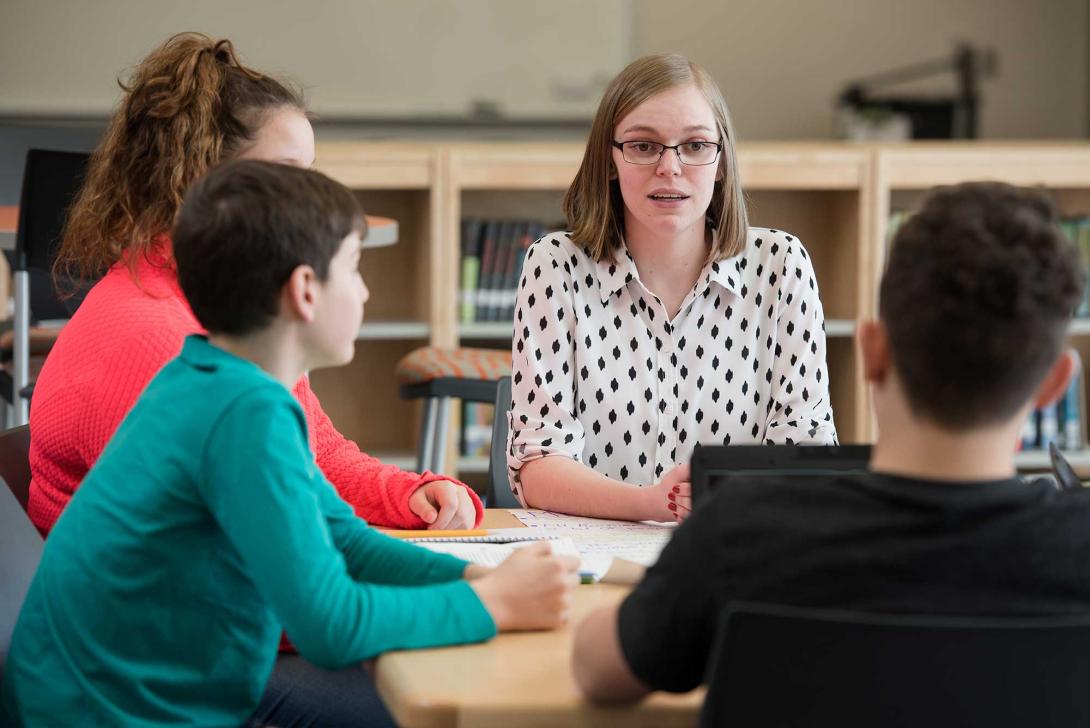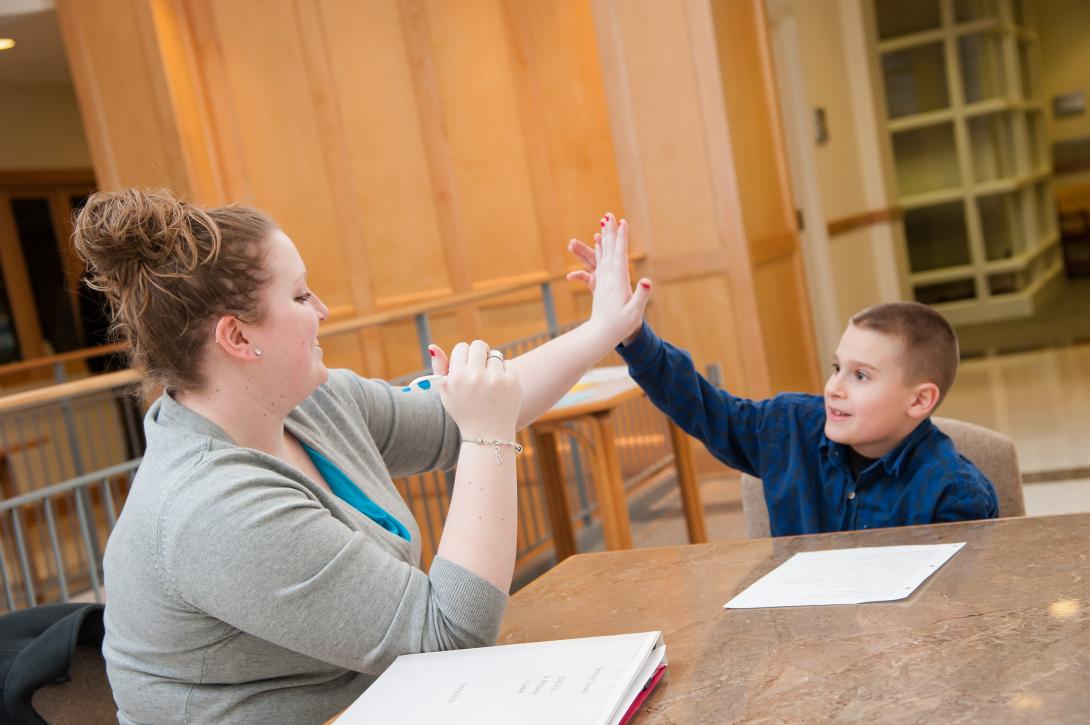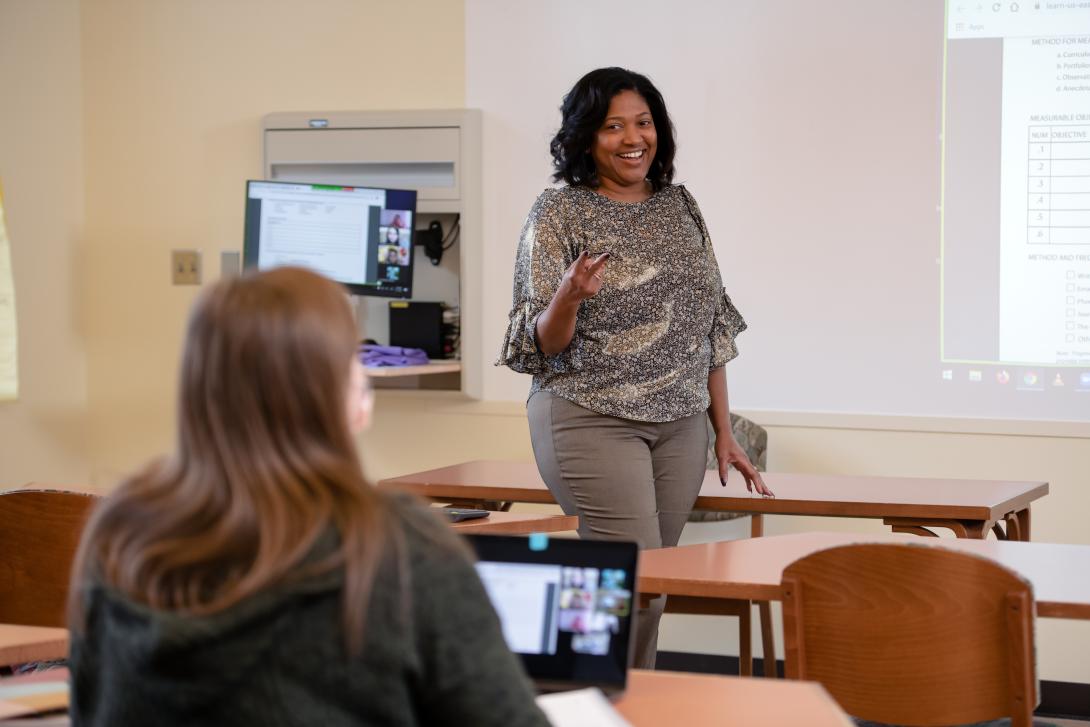Intervention Specialist Program Overview
An Intervention Specialist license in Ohio qualifies you to teach children in grades K-12 with mild to moderate disabilities.
One of the most personally rewarding careers available to undergraduate students, intervention specialists are perhaps the most versatile teachers in the field. The mild-moderate and/or moderate-intensive Intervention Specialist license is designed for you if you recognize the value of diversity in our world and believe that ALL children can learn, especially when educators provide the right support.
The Intervention Specialist program at Ashland University is approved by the Office of Special Education in the Ohio Department of Education and is nationally recognized by the International Council for Exceptional Children.

How Do I Know if This Program Is Right for Me?
Are you passionate about making a difference in the lives of individuals with diverse learning needs? Do you possess patience, empathy and a commitment to inclusive education? If so, a degree in Special Education might be the perfect fit for you. This program prepares you to support and empower students with disabilities, helping them reach their full potential academically, socially and emotionally.

Learning Experiences
Your course of study prepares you to teach students with moderate to intensive needs for intervention and those who may need alternative assessment.
Our program is unique for two reasons:
- Students work in the field beginning in their freshman year.
- Coursework is the same for both the mild-moderate and moderate-intensive licenses and you can choose to apply for a single or dual license.
Full-time faculty, all of whom are trained, licensed and experienced intervention specialists themselves, serve as academic advisors to students in the undergraduate licensure programs you choose. Your advisor will meet with you regularly to advise on coursework and to monitor your progress throughout the program.

Sample Curriculum
In the Department of Inclusive Services and Exceptional Learners, you will be in the field working with students and cooperating with teachers in a variety of settings.
For additional information about the Intervention Specialist curriculum, view the Four-Year Curriculum Guide and Academic Catalog.
First Year
Second Year
Third Year
Fourth Year
Can You Give Me a Glimpse of My Future?
In your future as a special education teacher, you will play a pivotal role in advocating for and championing the rights of students with disabilities. You'll create inclusive learning environments where every student feels valued and supported. With your dedication and expertise, you'll inspire growth, resilience and success in each and every student you have the privilege to teach.


